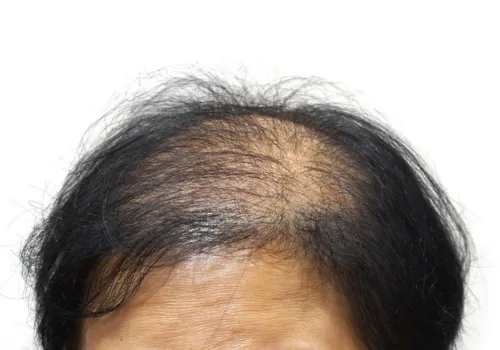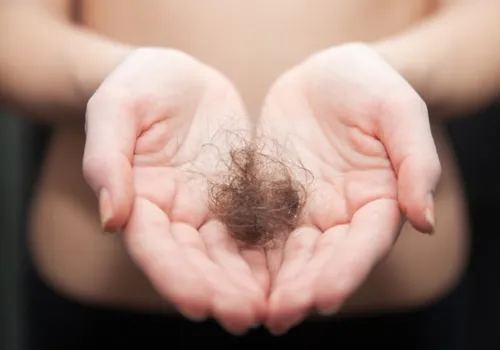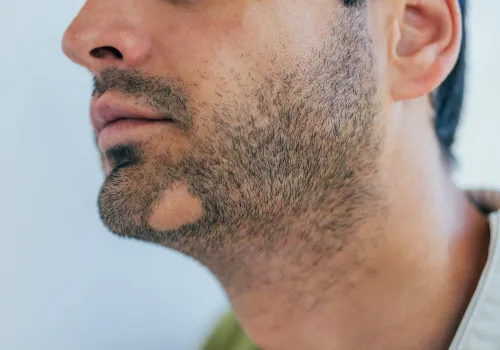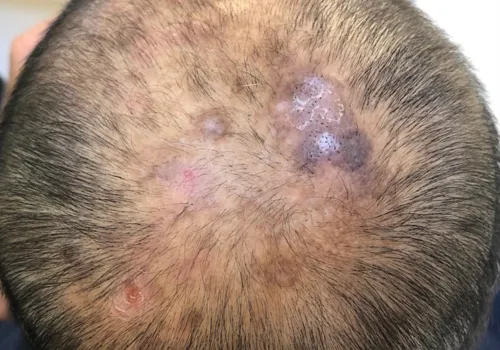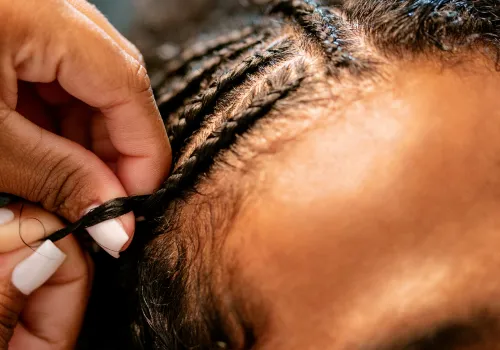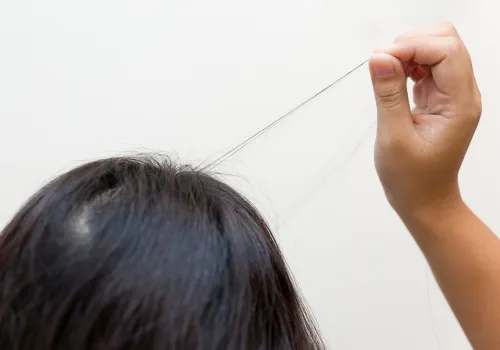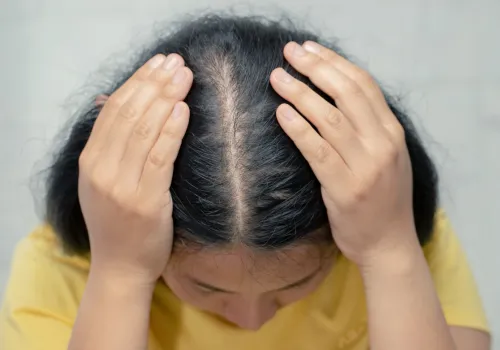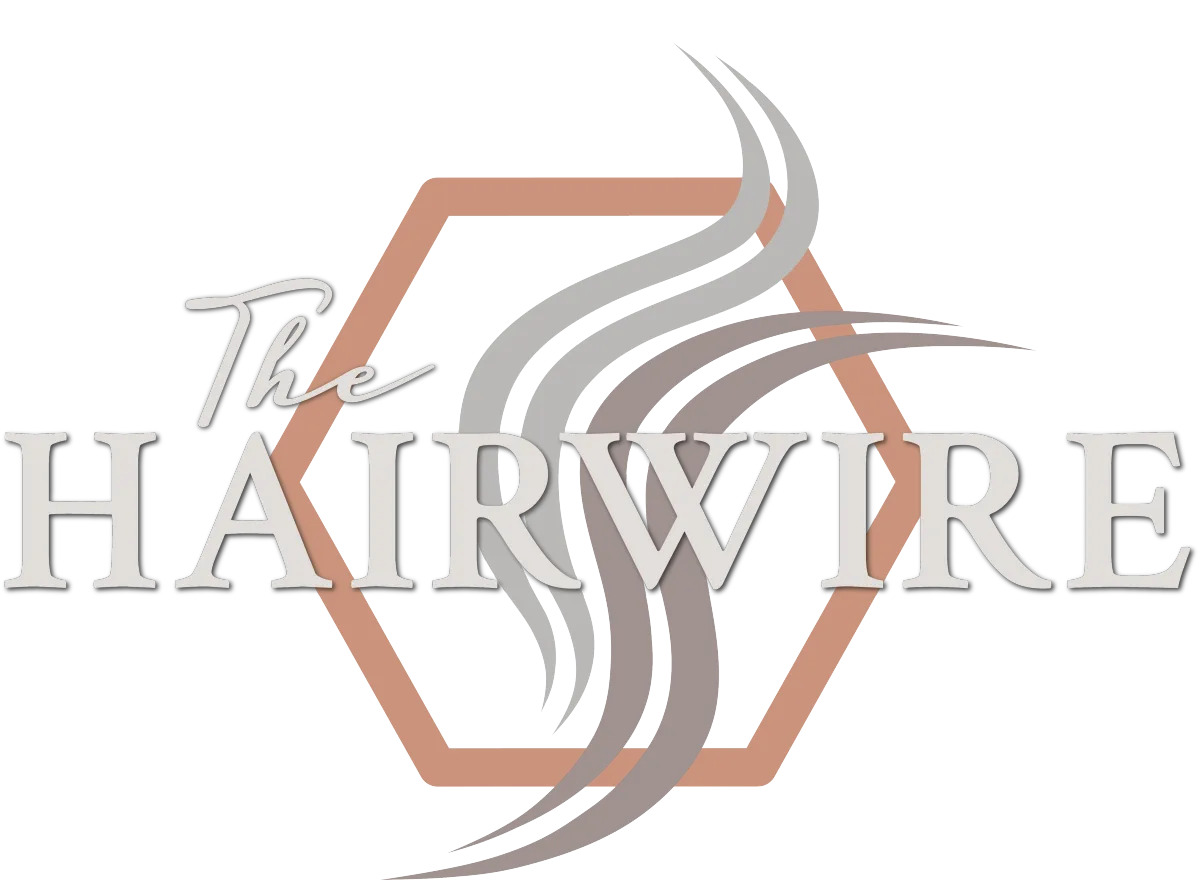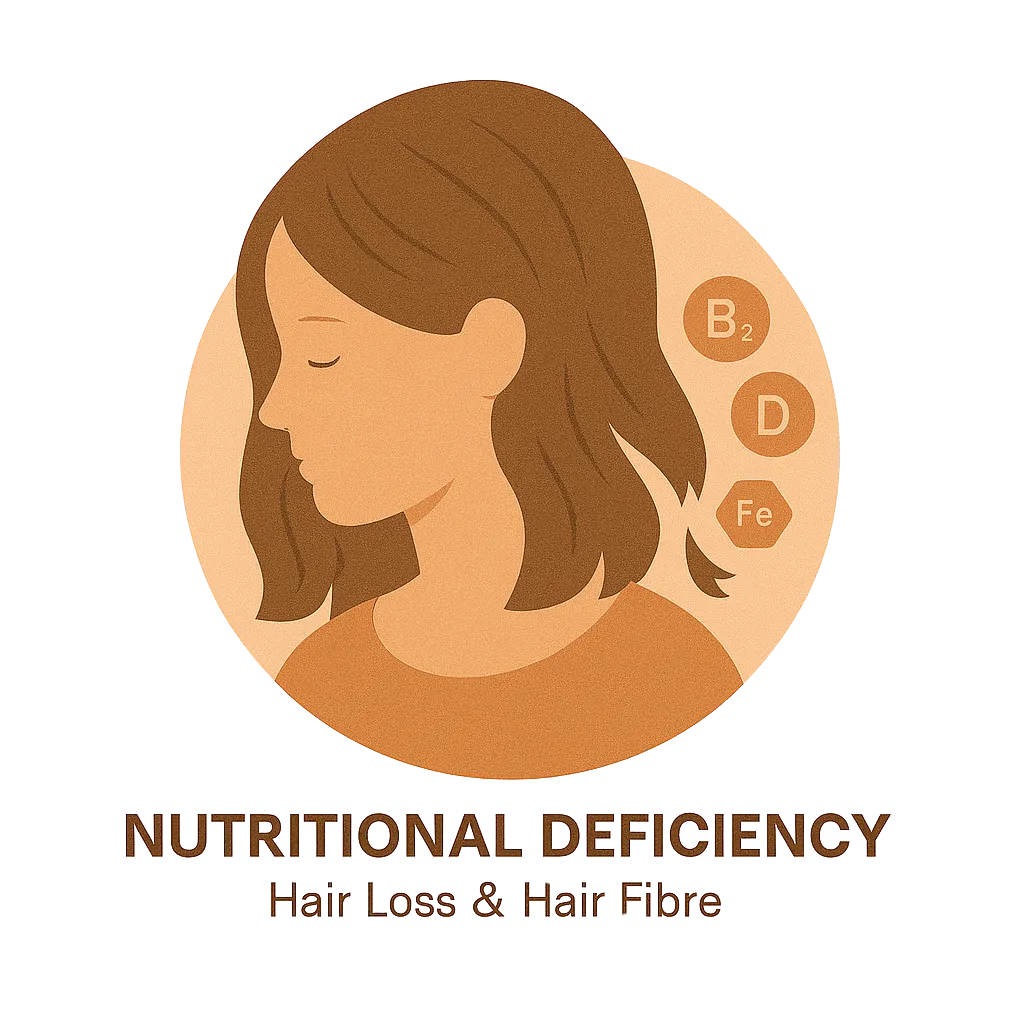
Nutritional Deficiency Hair Loss
(Hair Loss & Hair Fibre)
Hair requires proper nutrients to grow and maintain strength. Deficiencies in iron, protein, zinc, or vitamins like B12 and D can lead to thinning, breakage, or slowed growth, especially in restrictive diets or malabsorption conditions.
Scroll to Learn More
Hair thinning caused by missing nutrients that are essential for healthy follicle function and hair growth.
What is Nutritional Deficiency Hair Loss?
Hair follicles are among the most metabolically active structures in the body, requiring a constant supply of vitamins, minerals, proteins, and healthy fats to grow strong, healthy strands. When the body lacks key nutrients—whether due to poor diet, absorption issues, chronic illness, or restrictive eating—hair growth slows down or stops altogether.
Nutritional hair loss is often diffuse and reversible once deficiencies are corrected. However, if left unaddressed, it can lead to long-term thinning and increased shedding. This type of hair loss is often an early warning sign that the body’s internal balance is under strain.
Common Causes & Contributing Factors
Low iron/ferritin – Most common cause of chronic diffuse shedding
Vitamin D deficiency – Regulates follicle cycling and immune function
Inadequate protein intake – Hair is made of keratin, a protein
Zinc or biotin deficiency – Impairs follicle repair and cell turnover
Vitamin B12 or folate deficiency – Affects oxygen delivery to follicles
Essential fatty acid deficiency – Leads to dry, brittle hair
Poor gut health – Malabsorption due to SIBO, candida, IBS, or IBD
Crash diets, veganism, or bariatric surgery – Restrictive diets with insufficient nutrient intake
Don't worry, we can help!
Signs & Symptoms
Diffuse thinning across the scalp (no patchy bald spots)
Hair that breaks easily or lacks shine and elasticity
Slowed regrowth or stunted length retention
Scalp dryness, flaking, or increased sensitivity
Brittle nails, fatigue, brain fog, or skin dryness (systemic signs of deficiency)
Professional Support & Diagnosis
How It’s Diagnosed
A trichologist or functional practitioner may perform:
Functional Blood Chemistry Analysis (ferritin, B12, vitamin D, zinc, magnesium, protein markers)
Review of dietary history and digestive symptoms
Hair strand mineral analysis (optional)
Gut and liver function tests if malabsorption is suspected
Lifestyle and stress evaluation (which can impact nutrient needs)

Treatment & Management Options
Lifestyle Recommendations
Eat a nutrient-dense, anti-inflammatory diet with high-quality protein, leafy greens, healthy fats, and fermented foods
Avoid skipping meals or overly restrictive diets
Support digestive health to improve nutrient absorption
Topical / Clinical Treatments
Scalp therapy with plant-based oils and peptides (to soothe and stimulate)
Red light therapy to enhance scalp circulation and follicle repair
Microneedling (once deficiencies are corrected) to reactivate dormant follicles
Scalp Therapies & Supplements
Iron (if ferritin is low), with cofactors like vitamin C
Vitamin D3 + K2 for absorption and immune regulation
Zinc, biotin, B-complex, magnesium, and amino acids
Digestive enzymes or probiotics (if gut dysfunction is present)

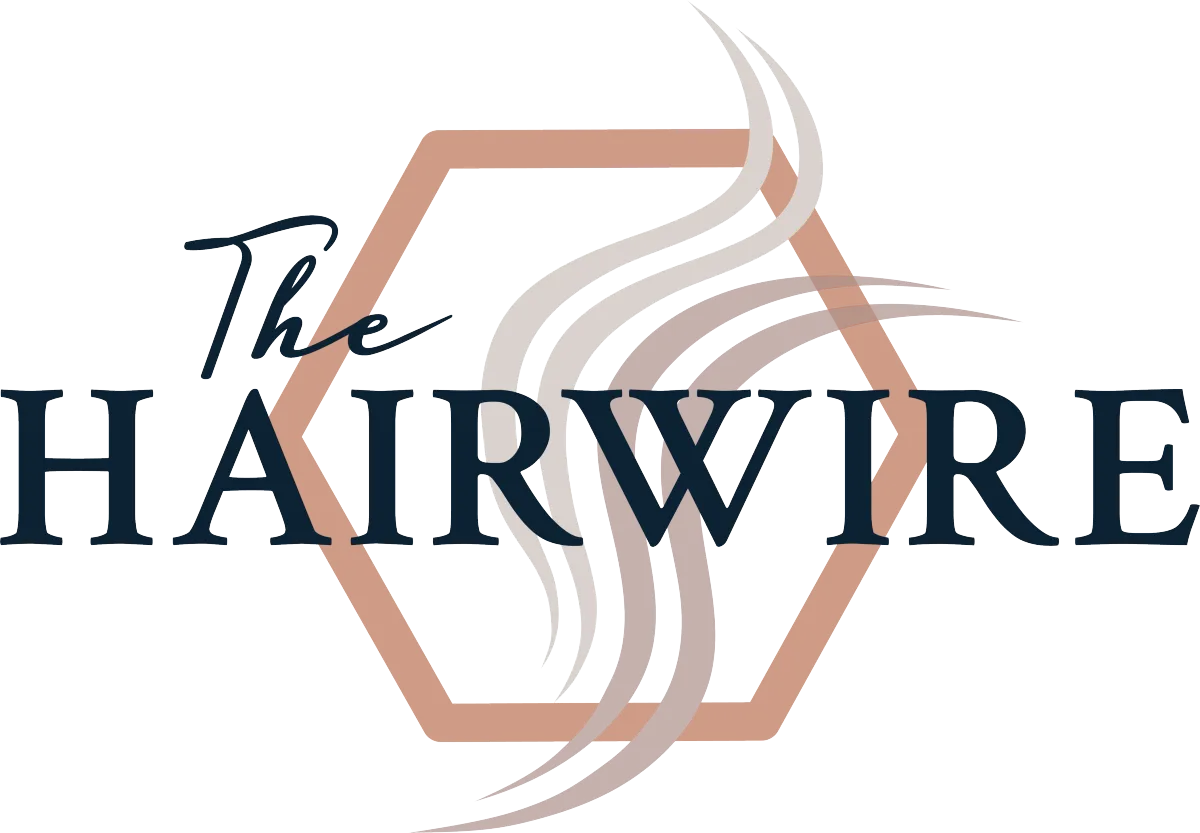
Not ready to book a session just yet?
That’s okay—your curiosity still matters! If you have a question about hair or scalp health but aren’t ready to move forward with a consultation, feel free to send it our way. We may feature it in an upcoming blog post or use it as a topic in a future live session—because chances are, someone else is wondering the same thing too.
Androgenetic Alopecia Blog
We regularly share content on this topic through both video and written posts. Use the search bar to find answers to the specific questions you're looking for.
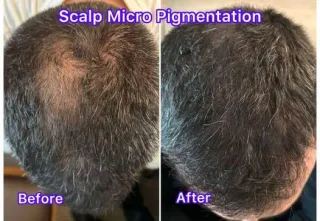
Scalp Micropigmentation (SMP)
Scalp Micropigmentation (SMP) ...more
Androgenetic Alopecia ,Bissan
May 22, 2025•5 min read

General Hair Loss Treatments
General Hair Loss Treatments ...more
Trichology ,kerrijarrett
May 22, 2025•1 min read
Real Stories. Real Experiences.
You're Not Alone — And You Never Have To Be
Hair loss from nutritional deficiency isn’t just about what’s missing on your plate — it’s about what your body is crying out for.
Whether you're dealing with Telogen Effluvium or slow, silent shedding, it can feel confusing and deeply personal. But you’re not alone, and you’re not imagining it.
This space was created to bring clarity, community, and compassion to the journey.
You’ll find real people sharing real experiences — not bandaid fixes or quick-fix promises. Just honest stories, hope, and reminders that healing is possible.
Because your body is wise. Your hair is speaking. And we’re here to help you listen.
You’re seen. You’re supported. And we’re walking this path with you.
"I was eating clean but still losing hair. My bloodwork showed low ferritin and vitamin D. Once I adjusted my supplements and supported my digestion, the shedding finally stopped."
– Client, Age 38
Want to Learn more on Nutritional Hair Loss
Explore the root causes, early signs, and real solutions for hair loss driven by nutritional deficiencies. Our expert-led videos on The Hair Wire break down the science behind how things like low iron, protein gaps, or missing minerals can impact your strands — and what you can do about it.
Whether you're dealing with sudden shedding, chronic thinning, or just not feeling like yourself, we’re here to help you connect the dots between your nutrition and your hair health.
Watch now on The Hair Wire and take your next step toward informed, empowered healing.
CLICK BELOW TO WATCH FIRST!
Nutritional Hair Loss FAQ
Can a lack of nutrients really cause hair loss?
Yes — and it’s more common than most people think. Your hair isn’t essential for survival, so when your body senses a nutrient deficit, it diverts resources elsewhere. Hair is often the first thing to show there’s something off, long before labs do.
Which nutritional deficiencies are most linked to hair loss?
The big players? Iron, ferritin (your stored iron), B12, vitamin D, zinc, protein, and sometimes essential fatty acids. Each one plays a different role in the hair growth cycle — and being low in just one can tip the balance.
What does hair loss from nutritional deficiency look like?
It’s often diffuse thinning, meaning all over, not just one patch. You might notice excessive shedding in the shower or on your pillow, a thinner ponytail, or dull, lifeless strands. The texture might shift too. It’s your body waving a red flag.
Does frequent hair washing or brushing worsen AGA?
Telogen effluvium is a sudden, diffuse shedding triggered by stress, illness, or medication, and it’s usually reversible. AGA is gradual and patterned, with miniaturized follicles and a genetic/hormonal cause.
How long after a deficiency does hair loss start?
There’s usually a 2–3 month lag between the trigger (like a crash diet, illness, or postpartum depletion) and when the shedding begins. That’s why it can feel like the hair loss came “out of nowhere.” But it didn’t, your hair’s just showing the timeline.
Can you reverse hair loss caused by poor nutrition?
Yes — but you have to be consistent. Once nutrient levels are corrected and your body feels safe again, the hair cycle can normalize. Regrowth typically starts around the 3-month mark, but full recovery takes longer. Hair needs time to catch up.
Can supplements help with nutritional hair loss?
They can, but only if you’re low in that specific nutrient. Blindly taking hair supplements is like throwing darts in the dark. It’s better to test, not guess, and build a plan based on what your body actually needs.
Why are my labs “normal” if I’m still losing hair?
“Normal” lab ranges don’t always reflect optimal levels for hair growth. For example, you might be within range for ferritin but still too low for your body to prioritize hair. Hair is sensitive. It often demands better-than-average health to thrive.
Can crash dieting or food restriction trigger hair loss?
Absolutely. When calorie or protein intake drops too low, even for a short time, your body puts non-essential functions (like hair growth) on pause. It’s a protective mechanism. But unfortunately, the hair doesn’t bounce back overnight.
Is protein really that important for healthy hair?
Yes, hair is made of keratin, a type of protein. If you’re not eating enough (especially after illness, surgery, or during high stress), your body won’t have the building blocks to keep hair growing. Think of protein as the scaffolding for your strands.
Is protein really that important for healthy hair?
Yes, hair is made of keratin, a type of protein. If you’re not eating enough (especially after illness, surgery, or during high stress), your body won’t have the building blocks to keep hair growing. Think of protein as the scaffolding for your strands.
Are You a Hair & Scalp Professional? Join the Faculty of Trichology
Whether you're already an expert, just getting started, or looking to deepen your specialty—we’ve got something for you.
The Faculty of Trichology is where professionals come to elevate their skills, build their credibility, and connect with a network that takes hair and scalp health seriously.
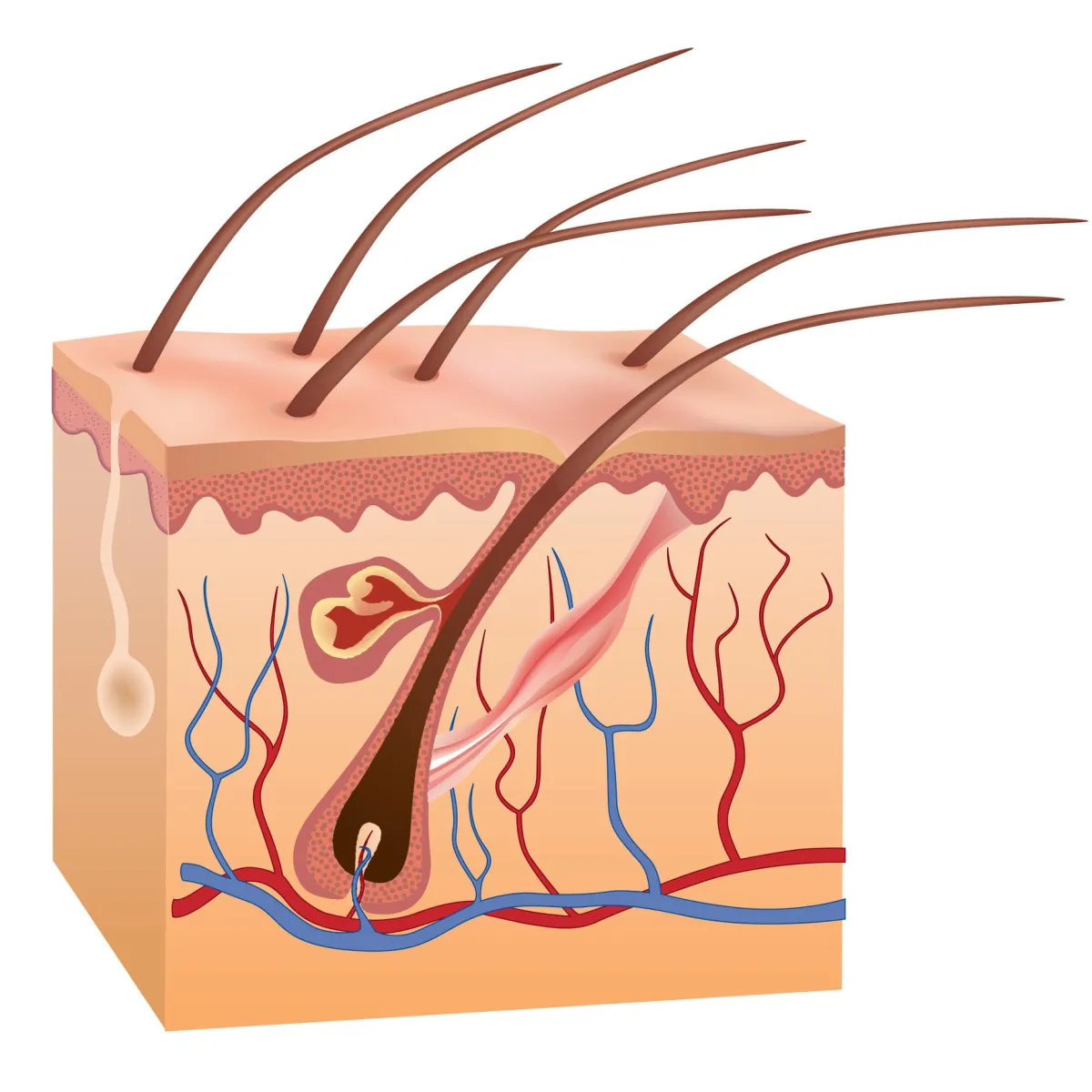
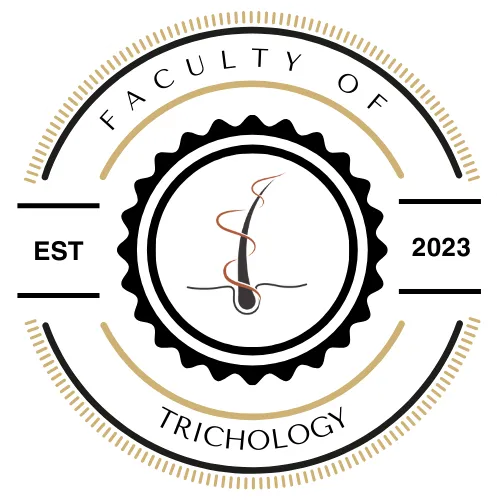
We’re more than hair. We’re a community, an education platform and a movement.
Our mission is to raise the standard — reigniting the heart of this industry with integrity, purpose, and connection. We’re also committed to bridging the gap between cosmetology, dermatology, and general practice, creating a more collaborative and informed approach to hair and scalp health.
ABOUT
The Hair Wire is a trusted resource created by trichologists, for anyone seeking clarity around hair and scalp health. With clinically backed information, we simplify complex hair loss conditions and offer professional insight, education, and solutions—one strand at a time.
DISCLAIMER
The content on The Hair Wire is intended for educational and informational purposes only. It is not a substitute for medical advice, diagnosis, or treatment. While our material is guided by professional experience and clinical trichology, we encourage individuals to consult with their own healthcare or wellness providers when making personal health decisions. The Hair Wire offers professional insights, not medical directives.
PATRON ACCESS
PRO' ACCESS
© Copyright 2025. The Hair Wire / Facutly of Trichology. All rights reserved.
